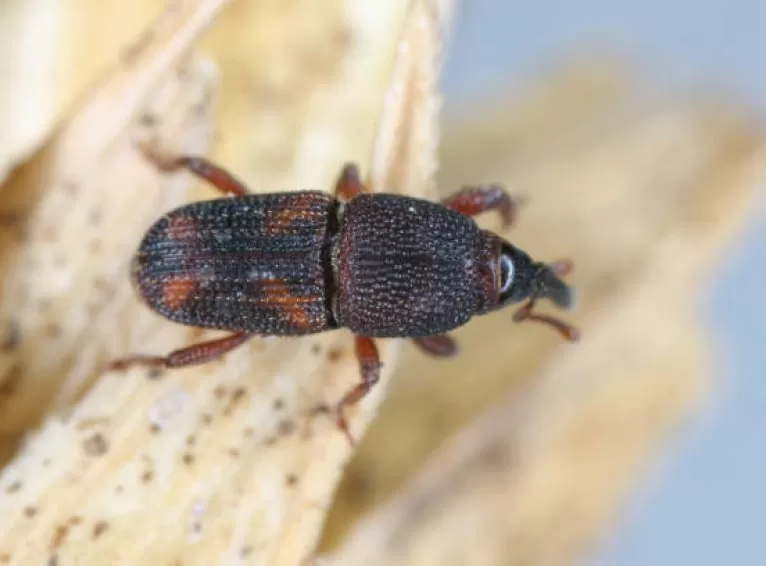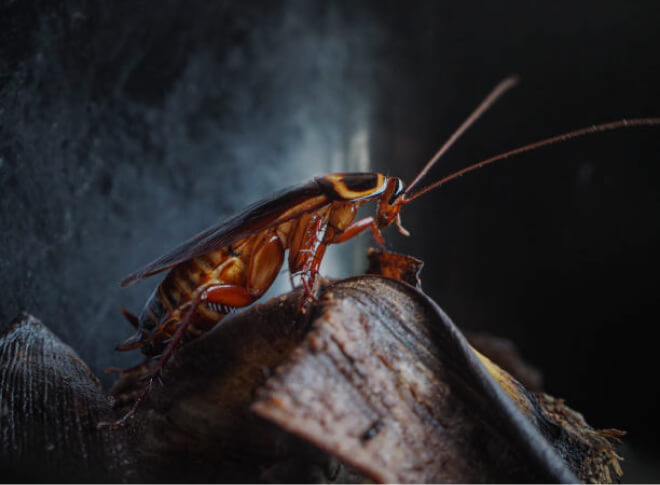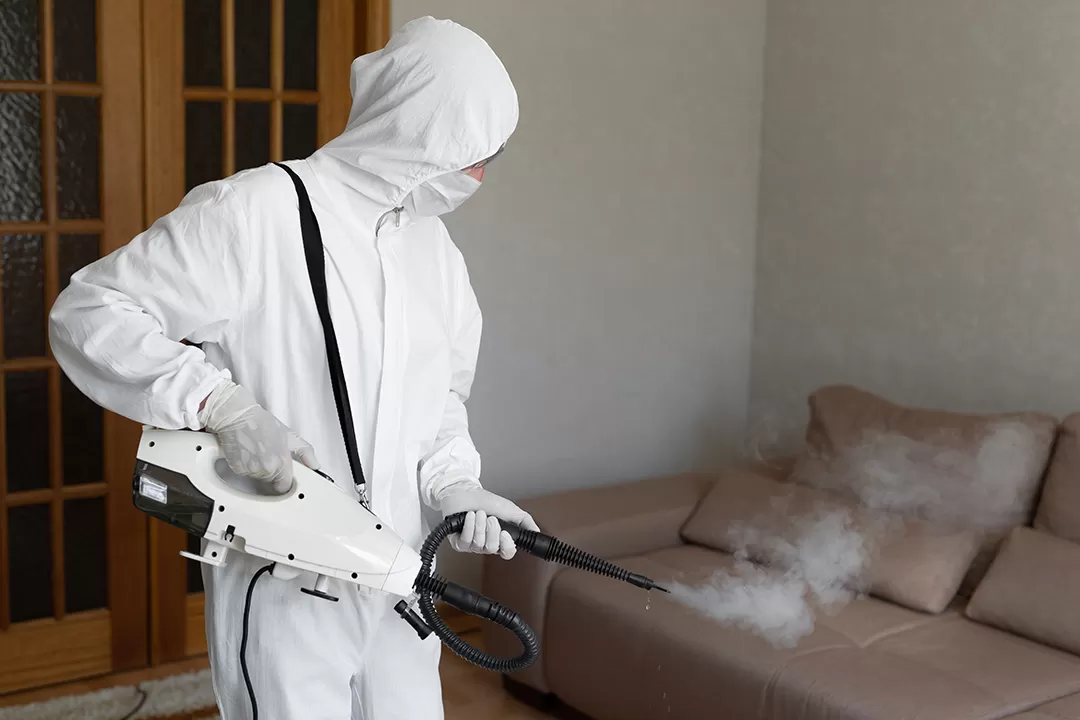Tiny and harmless-looking ants can become intolerable when they move into your home as one colossal colony. Under such circumstances, one of the easiest techniques for ant management that comes to mind is reaching for off-the-counter bug sprays and ant traps.
While these are easy options, their toxins can have serious consequences on your health and the environment. What’s more, ants are intelligent insects that can feel pain. When trying to deal with these pests in your home, you may find holistic techniques for ant management to be a better option.
If you are clueless about how to tackle ants without your “trusty” bug spray, we’ll help you! Below, you can read about some effective but humane ways to combat ants.
Techniques for Ant Management
Remove Sources of Food, Moisture and Shelter
Like any other pests, ants are attracted to food and shelter. One of the best ways to prevent ants from invading and reducing any existing ant population is to maintain general cleanliness. Start with your kitchen first. Clean all the floors, cabinets, and countertops with a solution of vinegar and water. This will help remove traces of food and any remaining scent.
Also, be careful where your food crumbs are falling onto. What may be an insignificant crumb to you might feel like a grand welcome party to ants. Have designated places for eating and clean up as soon as you can afterwards.
Do not leave garbage uncovered. Store trash in air-tight containers and throw them away on the same day. When you store food, keep it in tightly-sealed containers. The same should be done for pet food as well.
As ants also enter homes searching for shelter, you can remove objects like flowerpots and children’s pools in the yard. While you are at it, remove any bricks, logs, debris, boards, furniture, etc., that are lying around. Ants will find it difficult to find a shelter if your yard is clean and tidy.
Find Out Where Ants Are Coming From
Seeing ants in your home can be confusing and overwhelming. They tend to travel in long queues towards any available food and then carry it back to their shelter. Finding out where the ants go back to will make it very easy for you to combat the ant problem at hand.
For this reason, try to follow the ant trail and check where they may be coming from. You will find that they are either coming from a nest inside your house or are entering your home through an entryway, which can be a tiny hole in the walls or floors. Either way, you can use caulk to seal all their potential entryways. You should also install weather stripping so ants and other tiny insects cannot squeeze through the gaps underneath your doors.
Remove Scent Trails
Ants boast a strong sense of smell. They use this in their favour to communicate with the rest of the colony through pheromone trails. Individual ants release pheromones to send specific messages to other ants.
Other ants take full benefit of their sensory organs to pick up on the smell of pheromones. Scouting ants use pheromone trails to direct other ants towards a food source. Ants can also leave distress pheromones to ward off nearby ants in times of danger.
Getting rid of these pheromone trails can confuse the ant colony and prevent more ants from entering your home. However, simply sweeping or vacuuming will not eliminate the smell; you will need a mixture of vinegar and water to remove pheromone trails.
Use Natural Repellents to Keep Ants Away
Looking for non-toxic ways to get rid of ants in your house? Then natural treatments are your best bet! There is a surfeit of natural ingredients that can repel ants. Thankfully, most of these are commonly available in households.
Start by identifying where the ants are coming from. If they enter through the windows and doors, pour some natural repellents at their entry point. They will not cross over this repellent. While at it, also pour natural repellents at all the potential entry points around the house. If you suspect any ant nests inside the house, you can also pour the repellent wherever you think these are located.
Now, let’s discuss which ingredients make for excellent ant repellents. Cream of tartar is a strong ant-repellent. All you have to do is pour some in places you do not want ants to enter through. You can also leave chilli pepper, paprika, cinnamon sticks, coffee grinds, cloves, or dried peppermint leaves near openings. The smell of these ingredients will deter ants.
Squeeze a lemon at the point of entry and leave the lemon peel there. Plant some mint around the house, and that will also keep ants away. Your home will smell fresh and minty, but ants will hate it. Another great home remedy is to leave garlic cloves on ant pathways in and around the house.
Choose Non-toxic Commercial Repellents
If you still want to choose an off-the-counter solution, look for a non-toxic repellent. There are various organic and safe options that are harmless to humans and animals. Despite their non-toxic nature, these repellents are able to drive ants away. Spray these commercial repellents on areas where you do not want ants around.
However, be careful not to spray this repellent directly onto ants. The active ingredient in most of these repellents is d-Limonene, which can destroy the waxy coating of the ants’ respiratory systems. As a result, directly applying it to the insects will cause them to suffocate and die. Simply spray the non-toxic repellent around your home and watch the citrus flavour deter ants.
Final Takeaway
Want an ant-free environment but also want to do it in a humane way? It’s possible! All it takes is a little extra effort to find the right products. If you want a super-easy solution, look for a non-toxic commercial ant repellent. In case you cannot find a suitable and safe-for-all ant repellent, you will have to take the DIY route.
You can make use of simple kitchen ingredients to deter ants. The pungent smell of ingredients such as garlic, cinnamon, peppers, paprika, and coffee will help you ward off ants. All you have to do is place these at common or potential ant entry points. You can also use lemon juice, peel, and mint plants to ward off ants.
Finally, remember that keeping a clean and clutter-free home can stop ants from even coming inside your house in the first place. Anyway, remember that prevention is always better (and easier) than treatment.
Also, even after applying these techniques for ant management, if you are unable to manage the ant situation on your premises, you should seek professional help. Contact a pest control company at the earliest. They would be able to access the problem better and apply the right treatment to shoo the ants away for good.







